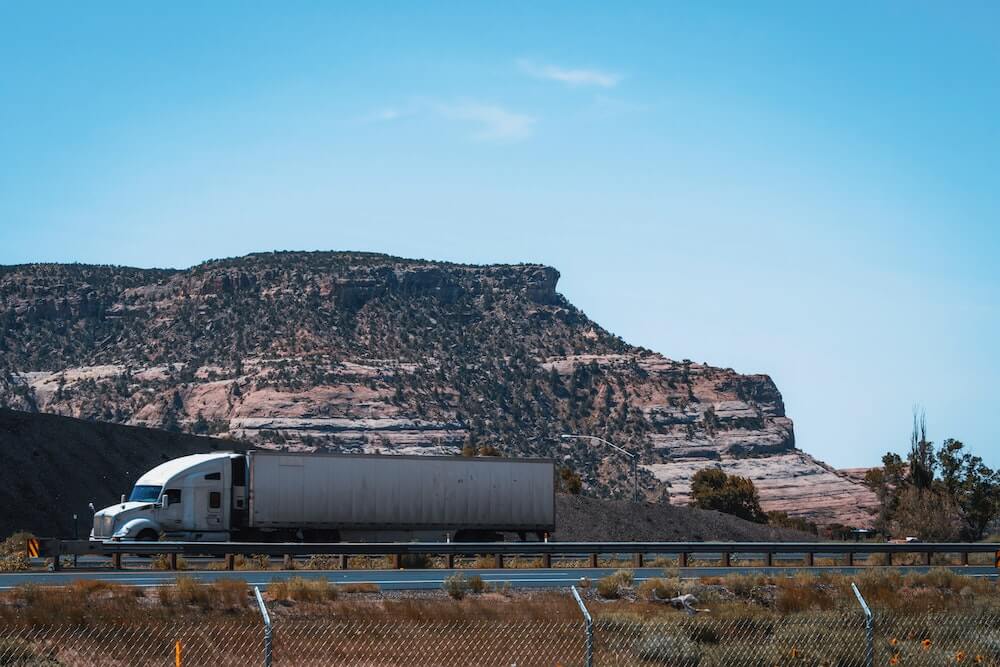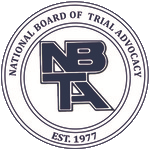
Most consumer products aren’t flown by plane or transported on a train to their final destination. Instead, they are picked up by tractor-trailers at ports and transported to distribution centers. Warehouse workers generally unload the trailers, sort the products, and divvy them between their stores. Distribution center employees then load those products in a trailer and summon a trucker to haul them away to their final destination.
There is certain protocol that warehouse workers should follow when filling trailers to both maximize space and minimize the chances of shifting loads. This due diligence sometimes doesn’t occur, not only costing distributors money but putting individuals at risk of getting hurt.
Our truck accident attorneys in Lexington, KY, will delve a bit deeper into that latter point in this article. They’ll highlight the perils associated with unsecured loads, particularly as it relates to how it may lead to motor vehicle accidents and injuries.
What Constitutes an Unsecured Load?
A concise way of describing an unsecured load is one that hasn’t been attached or fastened to the vehicle or trailer itself using chains, netting, ropes, metal braces, or tarps. A load may be deemed not to be secure if the potential exists for its load to detach or otherwise move about during the vehicle’s operation.
The Federal Motor Carrier Safety Administration (FMCSA) has authored many different Cargo Securement Rules over the years. It shouldn’t come as a surprise that there’s no single rule for securing a load, given how different vehicles have different designs and carrying capabilities. How a truck’s load needs to be secured comes down to the truck’s design in many respects.
For example, there are all different types of trucks, including tankers that carry gas, oil, or milk and straight trucks, where the cab and cargo unit operate on the same chassis. There are then also tractor-trailers that come in all sorts of configurations, such as:
- Flat, open bed ones: Think about ones that carry steel beams, logs, or concrete barriers used for road construction.
- Partially enclosed ones: An example of this type of truck is one that street cleaning crews may place collected leaves in. These may feature a solid frame along the cab-side portion and sides with a gate at the rear. A tarp may cover the upper portion of the trailer to keep everything inside.
- Fully enclosed ones: These are probably the ones that you’re most accustomed to seeing on the road. They are often the ones carrying the most packages or heaviest loads.
The type of truck involved dictates which FMCSA Cargo Securement Rules apply, similarly to how its load compared to its gross vehicle weight rating (GVWR) may impact whether it complies with the U.S. Department of Transportation (DOT) regulations.
Speaking in generalities, an unsecured load is one that:
- Isn’t blocked, meaning that the forward movement of cargo is a possibility.
- Has an unequally distributed load, such as being bulked together and unrestrained in one corner of the truck.
- Larger, odd-shaped items aren’t wrapped in plastic.
- Boxes aren’t secured in a closed position so that they don’t spill in transit.
- Larger, heavier items are stacked on top of lighter ones, making a collapse more likely.
- The load isn’t held in place by load straps or metal braces to prevent shifting from occurring.
There are many dangers associated with unsecured or shifting loads (and overweight trucks) which is why government officials have rules and regulations regarding these matters.
Strategizing Is Required to Secure a Load
You may have been able to surmise ways in which truckers or fleet companies secure loads by reading what defines an unsecured one above.
Any trailer-filling project needs to begin with a strategy session. All parties involved in filling the truck need to be present when that meeting happens. The following factors may dictate how you fill the truck:
- The dimensions and weight of the items being loaded in the trailer
- Whether cushions need to be placed between boxes to minimize the potential for movement
- Where trailer anchor points are and how to most effectively use them to thread tie-downs as you weave a web to keep cargo in place
- What are the right braces, ropes, or other equipment for the job (this will be contingent upon the cargo it’s holding in place)
Loads have the potential of shifting in transit, even when they’re tied down. Braces or straps can become loose with friction as they hold cargo in place, especially on a long trip. This is one reason why it’s a good idea for truckers to regularly inspect their loads to ensure that none of the restraints or cargo have sustained any damage.
It’s easier to make changes at these points when little to no damage has occurred than later on when cargo has been ruined or once shifts are so significant that they can endanger someone’s life.
What Are the Dangers Associated With Not Securing a Load?
An inadequately secured load can cause a variety of problems, including:
- The rig could shift, resulting in an overturn accident, crushing nearby motorists underneath.
- A sudden force of the impact within the trailer could cause the rear door to become ajar, causing the goods inside to be strewn about.
- A trucker or warehouse worker opening the trailer could be struck by items inside the trailer, resulting in blunt force trauma injuries.
- Items could fall or fly off a fully or partially open trailer bed, creating a hazard for other motorists to navigate or they could crash into a nearby vehicle.
Unsecured loads can also impact a trucker’s braking abilities. Trucks can weigh around 10,000 pounds, an amount nearly 30 times that of a passenger vehicle.
A truck’s weight can significantly impact its braking distance, especially if the load it carries suddenly shifts forward. If an unsecured load is involved, any resulting rear-end impact with another vehicle may be far more catastrophic than it otherwise might have been.
What Your Rights Are if an Unsecured Load Has Hurt You
Collisions with trucks are seldom minor. They instead tend to result in passenger car drivers and other motorists that they strike suffering debilitating injuries or dying.
Jackknife, overturn, and rear-end crashes are particularly catastrophic. You have rights if one of these truck accidents has left you injured or if one has claimed a loved one’s life.
Our Golden Law Office trucking accident attorneys have experience helping clients fight for their right to compensation here in Lexington and across Kentucky. Let us advocate for you and your rights too.





